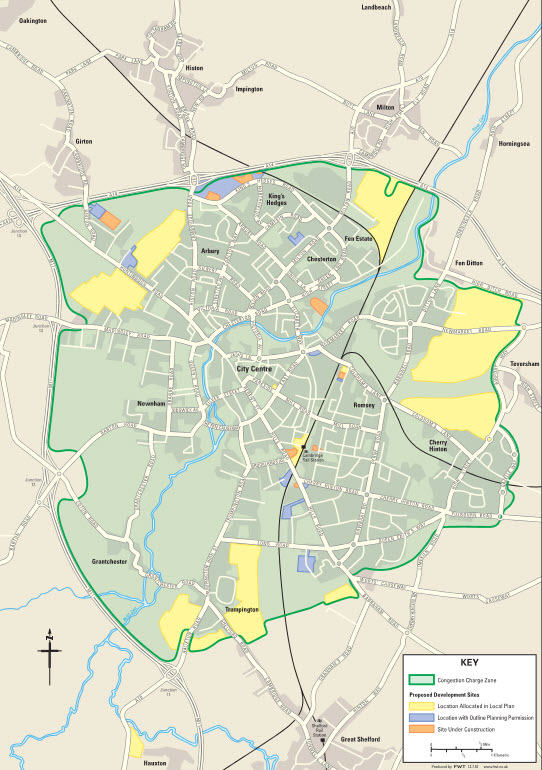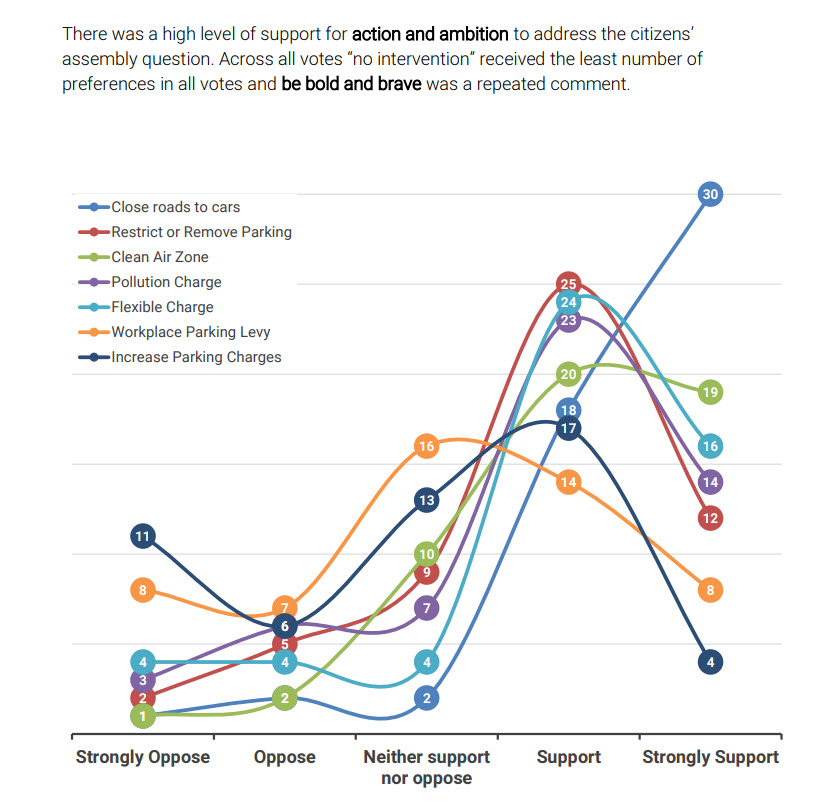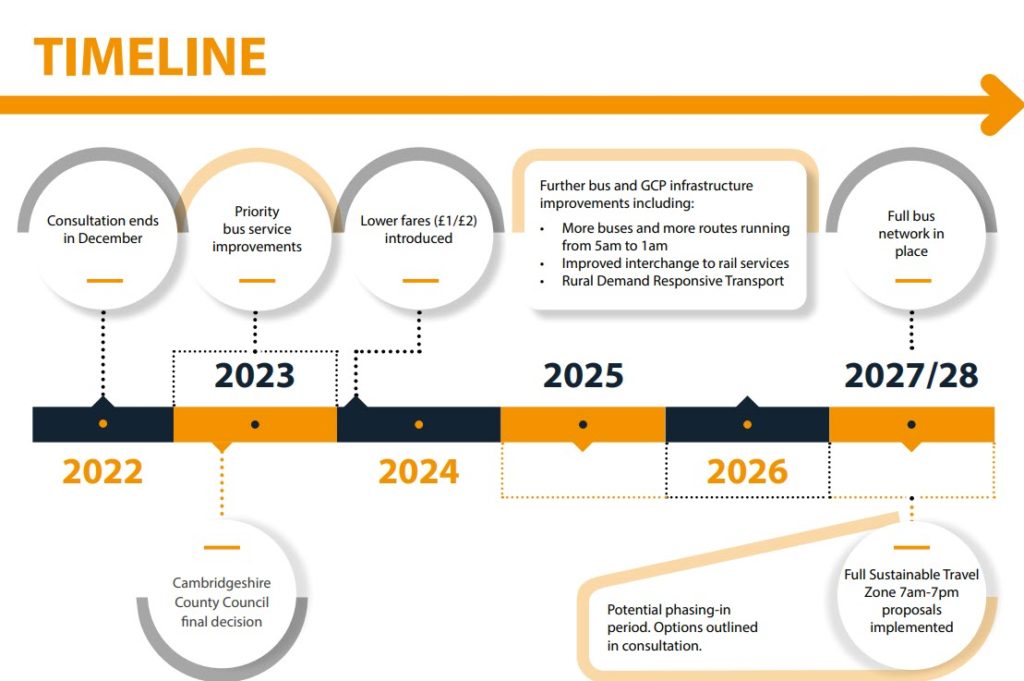The Greater Cambridge Area is unique because it comprises the very urban Cambridge City entirely surrounded by the very rural South Cambridgeshire. Both have seen substantial economic growth, as well as matching traffic which causes congestion in the City. The problem was particularly bad pre-pandemic, and is getting back into that state again. The proposals by the Greater Cambridge Partnership to try and improve bus service and active travel within the area is hitting a big snag. This is because of the third part of the proposal to introduce road charging after the improvements to maintain the improved bus service.
What is the GCP?
History is so often forgotten today. Many are unsure what the GCP (Greater Cambridge Partnership) really is and why it exists. I’ve heard it called all sorts such as “quango”, “undemocratic”, unwanted layer of local government and worse. When I ask if they know that the GCP is the renamed City Deal, many are surprised. The renaming happened in June 2017 as a way of getting more public involvement.
The City Deal is fundamentally a legal agreement signed with the Government in 2014. Its purpose is to unlock £500million of Government funding to be matched by £500m of local partners funding to deliver infrastructure improvements for Cambridge City and South Cambridgeshire. The City deal was signed in June 2014 by the leaders from all 3 councils; Conservative Councillor Steve Count of Cambridgeshire County Council, Labour Councillor Lewis Herbert of Cambridge City Council and Conservative Councillor Ray Manning of South Cambridgeshire District Council. You can read more of the original details on the Government website.
The funding from the deal was to support the Local Plans that both City and South Cambs Councils had submitted to the Planning Inspectorate in March 2014. Those plans, now adopted in 2018 proposed 33,500 houses to be built in the Greater Cambridge area over the next 15 years to 2031. We are stuck with the GCP unless the City Deal is amended. But it is has gone through two scheduled Gateway reviews in 2015 and 2020, with the last review coming up in 2025 which is aimed at releasing the last £200m tranche from Government, matched by funding from local partners.
The Cambridgeshire and Peterborough Combined Authority
Devolution took place in 2017 and the first Conservative Mayor of Cambridgeshire and Peterborough Combined Authority (CPCA) was elected in May 2017. Government gave the Mayor the responsibility for transport and travel in the whole combined authority area including Greater Cambridge. The intention being to have a close working relationship with the GCP so to assist with the delivery of its objectives. Part of that CPCA responsibility was bus franchising which unfortunately did not materialise during the 5-year term of Conservative Mayor Palmer. The plans for dealing with the transport in the area, especially bus service, to help with the delivery of the GCP objectives fell away. The current Labour Mayor Nik Johnson is said to be looking into bus franchising now.
Where did £500m figure come from?

Let’s step back even more into history. Some might remember that in 2007, the Conservative Cambridgeshire County Council led by Councillor Shona Johnstone proposed a road charging scheme. The aim was to charge cars between £3 and £5 per car entering the congestion zone. Incidentally, the congestion zone was the entire Cambridge City area. The similarity to the Making Connections proposal is rather obvious.
You can read more about the promotion of the scheme on BBC Radio. The County at the time promised no congestion charge in Huntingdon but better buses, saying the charge was just for the City. She believed the road charging was the only way the City could reduce the numbers of vehicles entering the city. Also that doing nothing was not an option.
Just as the GCP has done, the County Council then did a public consultation from November 2007 to February 2008 to give residents the chance to see the details of the proposed £500m transport scheme. The County Council prepared a proposal for applying to the Government Transport Infrastructure Fund (TIF). One of the funds conditions is that the County Council also considers a form of congestion charge. Cllr Johnstone went to the House of Commons Transport Committee in January 2009 to speak as a witness in favour of road charging. The County voted to submitted its bid in 2009, however in 2010, the Labour Government wound up the TIF. This then put an end to the proposal.
It is worth noting that the Cambridge Green Party fully supported the Conservative Congestion Charging proposals. You can read it for yourself in the manifesto document of the day. In short the parties now radically opposing the idea of a congestion charge have all been in favour in the past. There are no new proposals from them on how to solve the traffic problem, which makes their opposition suspect.
It is too much of a coincidence that the subsequent discussions for the City Deal centred on the same amount of £500m.
As the Cambridgeshire County Council has always had the responsibility for local highways, decisions to implement any GCP schemes will be made by the County Council.
Former GCP Proposals
Prior to getting to this stage in October 2022, the GCP had previously a Peak-time congestion control points scheme. This was proposed to control car access on specific busy roads at specific times of the day using ANPR cameras. This scheme did not go forward having been dropped in 2017.
In 2017, the GCP held a Big Conversation to find out the priorities of the city communities, receiving over 10,000 responses. This was focused on trying to find how the public thought how best to fund public transport whilst reducing traffic into the City.
Greater Cambridge Citizens Assembly

The Greater Cambridge Citizens Assembly was set up in 2019. Members of the public were selected at random from volunteers who applied to meet and discuss this transport and traffic issue again. The full report of the Citizens Assembly makes for very interesting reading especially page 7 showing graphical representation of the recommendations.
This clearly shows significant support for closing roads to cars by road charging, Clean Air Zone also received significant support. This was followed by flexible road charging. Page 65 onwards gives the Citizen Assembly key messages to the GCP Executive Board.
It is clear that the need for allowing fewer cars into the City is recognised even within its communities. And it is clear from this that the Making Connections Proposals built on the recommendations of the Citizen Assembly, made up of citizens of the City.
Making Connections Proposal
I have already written about the Making Connections Proposals in a previous blog post back in October 2022 at the start of the consultation. The full proposal is as illustrated in this flow diagram.

Suffice it is to say that the interest generated was high, primarily because the road charging proposed for Sustainable Travel Zone (STZ) equivalent to Clean Air Zone in the Citizen’s Assembly report was weaponised by those opposed to it. As is shown, the expectation is for the full bus network and active travel schemes to be in place before the STZ is implemented toward 2027/28. The STZ is not expected to come into force without the transport improvement being successful. The cost of the first two stages is to be borne upfront, whilst the STZ is proposed for maintaining the transformed network going forward.
The proposal put to public consultation could be improved upon using the feedback that the GCP has received and is continuing to work on. The outcome of the consultation is expected to be revised scheme using the consultation feedback.
Conclusion
There has been a lot of prior work on finding the best solutions to solve the traffic and transport problems in Cambridge City and surrounding South Cambridgshire. The lack of action in the past has resulted in the current ongoing situation. Something needs to be done – the question is what?